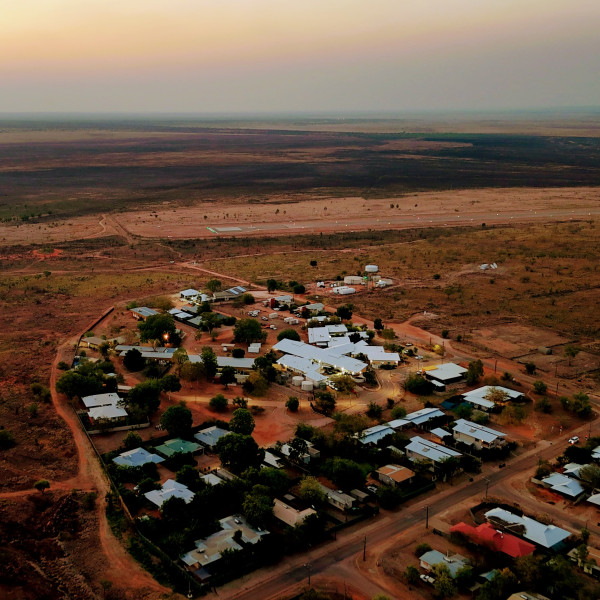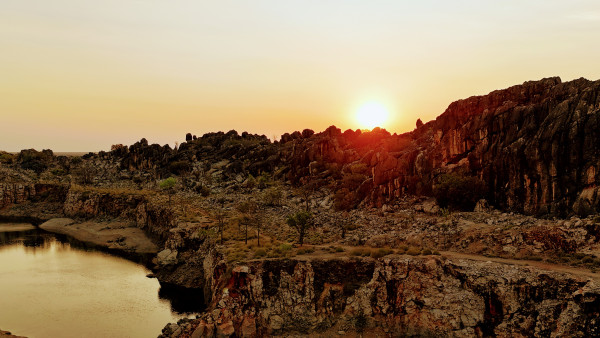A Doctor Of Honour
The highlight of Ochre Recruitment's loyalty program is the Golden Gratitude Award, where each quarter our consultants nominate one outstanding Ochre GP. Not only do we celebrate and reward their remarkable achievements, but we also donate $1,000 to a deserving individual or charity of their choice.
This quarter we are delighted to celebrate Dr. John Thurgood, a well-traveled Rural Generalist who has served his country as a Civil Engineer & Medical Officer in the Australian Army, and who is now working as a locum in both the ED and General Practice space across Australia. John has received military honours and awards including the Afghanistan International Security Assistance Force Medal, Australian Defence Medal, Defence Long Service Medal, Afghanistan Campaign Medal and the Australian Active Service Medal with clasp International Campaign Against Terrorism.
He is donating his $1,000 to his cousin Aime, who at age 26, slipped whilst holidaying in Hobart, damaging her popliteal artery resulting in an above-knee amputation. Amie plans to use the donation towards silicone socks (which are not cheap) and driving lessons.
John shared her story with us last week.
Tell us a bit about your childhood and family life.
I grew up in country Victoria in Beaufort a small town 45km west of Ballarat. My father was a teacher at the Secondary College I went too, my mother was the local librarian and I had an older Sister (by 2 years) and a younger Brother (by 2 years). Life was generally sport-orientated - Aussie Rules Footy in winter, Cricket and Tennis in summer and basketball all year round.
What set of circumstances or people inspired you to study medicine?
I was a Civil Engineer in the Army, considering discharge until a friend told me that the Army will pay you to do medicine. I didn't have high hopes but I thought I should put my hat in the ring before D/C and then a GAMSAT and a bunch of interviews later I was in 1st year Medicine at Notre Dame Sydney.
Why did you pursue a General Practice pathway?
It was an Army requirement, however I was always interested in a more generalised field - GP or ED etc, so was very happy to do RACGP.

Fitzroy Crossing Hospital and accommodation complex with airstrip and desert in the background
What factors do you think are currently contributing to the radical drop in graduates interested in General Practice?
A number of contributing factors: 1. There is the pay drop from PGY2/3 RMO with overtime down to a GP Registrar - with no sick leave, parental leave etc; 2. The idea that GP life can be more lonely professionally - rather than working in larger hospital teams; 3. Medicare Billing is complicated, the Government sets the public expectation that they should be bulk billed, however they fail to fund the GP Medicare billing numbers to make that viable. Most patients expect to pay a gap with other specialties but not General Practice. I wouldn't expect that Dermatologists (for example) are getting bleeding heart stories (however valid) at the END of the consultations nearly as much as GPs get. It is difficult and uncomfortable to say no and add just a little more unnecessary negativity and stress to the job. The Government could improve this by setting realistic expectations to the public (unlikely to happen) increase Medicare billing rates (unlikely to happen) or push the problem onto state-funded hospitals and EDs (which is more expensive, ends up coming from the federal budget, but gives them a political scapegoat).
In your opinion, what could governments do to reverse this?
Introducing Urgent Care clinics, where GPs are salaried helps fix both 2 and 3, but without an incentive to see patients quickly to maximise billings each doctor may see fewer patients, making that system more inefficient. It also isn't appropriate for chronic disease or preventative health which risks further increases in unwell patients presenting. I also think the more education for the public in how to look after themselves at home is the most important thing for the health care system in general. Adults should know how to manage a small graze, a headache, a URTI, mild gastroenteritis, etc at home - not turning up to the ED
Tell me a bit about your experiences working as a GP/ED in rural communities. What do you like most about this scope of clinical work?
I have been working in rural communities for 2 years, the majority in Hospital / Rural EDs. I like the mix of presentations, I like being more reliant on clinical skills rather than immediate access to detailed pathology and CT scanners (though I dislike the additional risks that this presents). I like the smaller staff numbers - it is easier to get to know everyone and I find it more social.

Fitzroy Crossing Quarry at sunset... a great watering hole for a swim after work
What are your favourite locations in which to locum and why?
I have enjoyed all the locations I have worked in, though NSW is probably the easiest to work in (once you get through the online mandatory training) because the IT system is very well integrated into one system (rather than rural QLD and WA which have different systems for notes, imaging, pathology, d/c summaries, etc. It makes it a lot harder to get started, and it left me feeling that I may miss some piece of information or a result will not be checked/recalled in a timely manner because of all the systems.
When you are not working, what do you enjoy doing to relax and unwind?
I hike and sail, and I spend some time relaxing at home, but mostly living on my boat in the Illawarra in NSW.
What advice would you give to GPs considering work in rural, remote and regional Australia?
For hospital / ED work - Start with going to larger communities with more MOs on staff, often the big issues in rural/remote communities isn't the medicine, it’s the logistics and the risk tolerance in how and when to transfer patients, get specialist advice, get outpatient follow-up (both specialist and allied health). I would also advise picking locations that don't require on-call work. It’s easier to find your feet and get comfortable if you haven't been up for 24 hours because your on-call shift turned to custard.
Thank you so much for sharing your story, John. And thank you for your dedication to providing healthcare to communities across Australia. We are lucky to have you!
---




